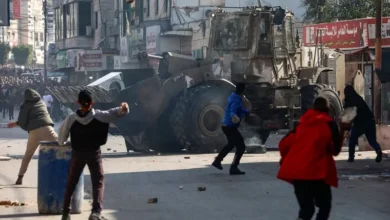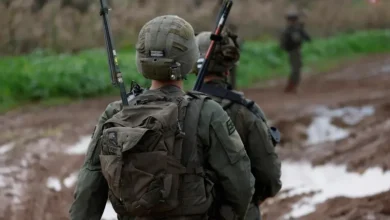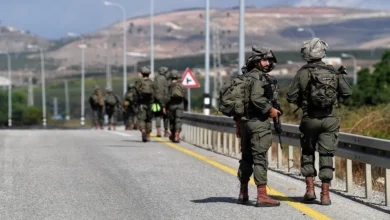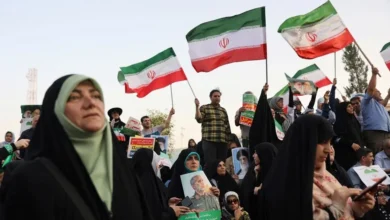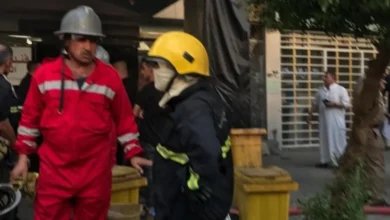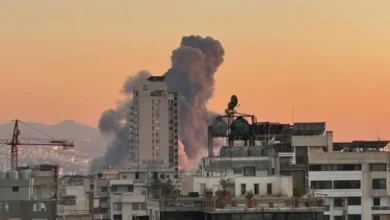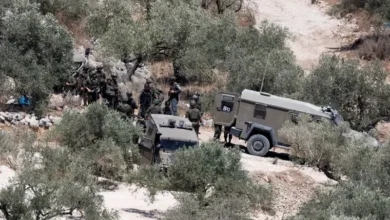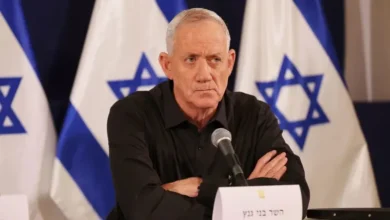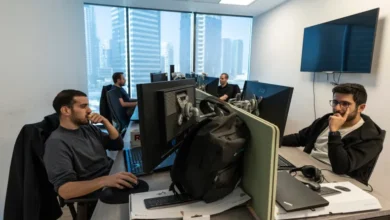Israel’s ‘war against Gaza’s children’ explained
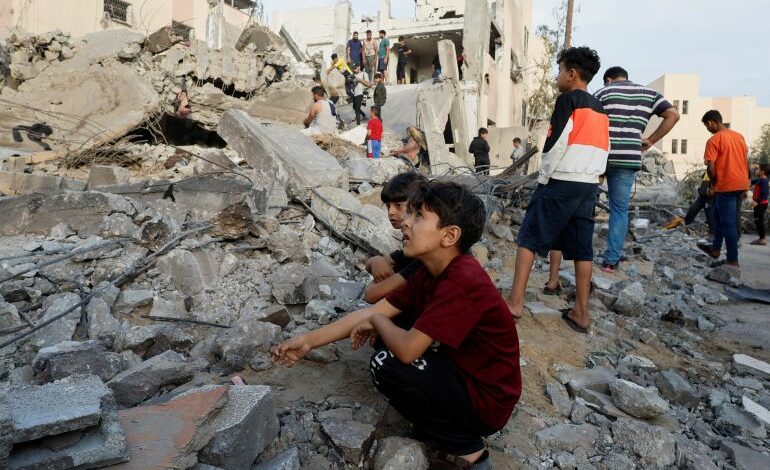
One child is killed every 15 minutes in the Israeli bombings of Gaza, according to a Palestinian NGO, highlighting the toll the current war has exacted on children.
More than 100 children have been killed every day since Israel started bombing the besieged Palestinian enclave on October 7 in the wake of the deadly Hamas attack. More than 3,400 Palestinians have been killed in the deadliest Israeli assault in decades.“We are witnessing a genocide in real time,” a spokesperson for The Defense for Children International – Palestine (DCIP) said.
At least 14 children were reportedly also among the 1,400 Israeli victims of the October 7 Hamas attack. About 200 people taken captive by Hamas also include children. Israel has not released data on the demographics of all of those killed in that attack.
Aren’t children legally protected in wars?
Yes, they’re meant to be. Internationally accepted rules of armed conflict were passed under the Geneva Conventions in 1949, which state children must be protected and treated humanely.
Israel ratified the conventions in 1951, just a few years after one and a half million Jewish children were killed in Europe during the Holocaust.
The disproportionate use of military might in Gaza is being billed by Israel as a legitimate means to destroy Hamas. And so civilian deaths tallied up in the attacks, including children, do not qualify as war crimes, Israel claims.
What effect is the war having on children?
Parents, like Esra Abu Ghazzah, try to find ways to calm their children from the bombings and destruction around them. The 30-year-old mother told Al Jazeera her children, aged eight and two, have started to vomit after air strikes, and are also wetting the bed. Both are responses to heightened fear.
The Abu Ghazzah children are part of the 95 percent of Palestinian children in Gaza who are living with the psychological effects of war.
A research paper written by Palestinian psychologist Dr Iman Farajallah found that children who survive wars do not emerge unscathed and can pay a high price psychologically, emotionally and behaviourally.Some children display restlessness, regression or violent behaviour.
For Samah Jabr, a 35-year-old mother of four in Gaza City, her eldest son, Qusay, who is 13, is her main worry. She told Al Jazeera: “He is very agitated and lashes out a lot these days. He jumps at any sound,” she said. “He can’t bear anyone speaking loudly, even if they’re joking. I try to tell him that this war will end.”
Others may not want to leave their mothers’ sight, explains Farajallah. “They won’t even leave the room to go to the bathroom or kitchen without their mothers, and I’m talking about teenagers here.”How have schools been affected?
With the latest campaign of relentless bombing, education has once again been put on hold, as schools turn into makeshift shelters and survival becomes the only lesson.
The United Nations is now sheltering about 400,000 displaced Gazans in its schools and other facilities, but the UN’s agency for Palestinian refugees, the UNRWA, which runs 278 schools in Gaza, has said at least four schools have suffered damage from Israeli bombing in which at least six people have been killed.
The Education Above All (EAA) Foundation, which provides scholarships for Palestinians in need at its al-Fakhoora school in Gaza, was destroyed on Tuesday. The EAA released a statement saying that “collective punishment, reprisals, and attacks on civilians and civilian infrastructure are serious violations of international humanitarian law, and if deliberate they are war crimes”.
How is the lack of food and water affecting children?
Israel’s total blockade on Gaza has meant no food or water can enter the territory, but Israeli authorities have said they resumed water supplies to southern Gaza on Tuesday. Palestinians have said without electricity to operate the water pumps, the water crisis continues.
With food and water rapidly running out, Gazans are prioritising whatever little water supplies they have for their children.
Children are more at risk of dehydration, and malnourishment can further speed up the effects of having no water.
A Jerusalem-based nutritionist with the UN food agency also told Al Jazeera that poor water sanitation can lead to children facing high risks of diarrhoeal diseases, which are the most common cause of dehydration and the globally leading cause of child mortality for under-fives.
A lack of food at best affects cognitive function and energy levels, and at worst can lead to starvation and death.
What are the long-term consequences?
For those who don’t die in this war, they will have to learn how to survive without the rest of their family members, explained Ghassan Abu-Sitta, a British Palestinian surgeon working with Medical Aid for Palestinians in Gaza. He has called this war “a war against children”.
“The repercussions of this war will not only affect the victims we have lost, some of which are still trapped under the rubble of their homes … but the psychological impact on us civilians and our children will be catastrophic,” Mohammad Abu Rukbeh, senior Gaza field researcher at DCIP, said in a statement on Tuesday.
Is a ceasefire possible soon?
As the bombardment continues, and borders stay sealed, international aid organisations including Save the Children have called for an immediate ceasefire.
UNICEF’s statement read: “An immediate ceasefire and humanitarian access are the top priorities to allow much-needed aid to children and families in Gaza.
“A child is a child. Children everywhere must be protected at all times and must never come under attack.”
